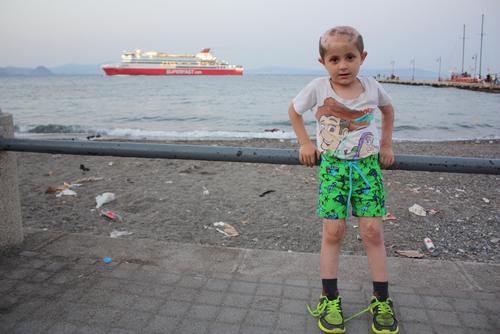Kobane, Syria - Médecins Sans Frontières (MSF) has supported the Kobane Health Administration to implement a nine days measles vaccination campaign in Kobane canton in northern Syria, reaching 5,776 children.
“The campaign took place in four locations in Kobane town to provide easy access to vaccination sites for residents” said Jason Mills, MSF Head of Mission.
The Kobane Health Administration, in cooperation with MSF teams, provided measles vaccination and vitamin A for children between six month and five years of age. The campaign started on 18 August and lasted for six days in town; followed by three days in four rural locations in the canton.
“The teams vaccinated 3,410 children in Kobane town and 2,366 in the surrounding villages,” Mills added.
MSF teams are witnessing the impact that this conflict has taken on the people; especially on children who have been severely affected by the recurring conflict. A breakdown in routine immunization in Kobane since mid-2014 has led to a resurgence of vaccine-preventable diseases. Cases of measles have been consistently reported across northern Syria over the course of the conflict. A vaccine coverage survey done by MSF in Kobane in June 2015 showed that only 17 percent of children were fully vaccinated.
“Children in Kobane have not been vaccinated for more than a year. The conflict has affected the whole health system,” explains Dr. Hikmat Muhammed Ahmed, Medical Focal Point for the Kobane Health Administration.
Health services in Kobane have been severely disrupted for over a year, which presented health risks for the returning people with regards to diseases and outbreaks.
“We are concerned about outbreaks of measles, polio, pertussis (Whooping cough) and water and hygiene related infections such as typhoid, hepatitis A and E - due to the prolonged interruption to routine vaccination services and the damage to the health, water and sanitation infrastructure,” says Vanessa Cramond, MSF Medical Emergency Manager.
MSF has worked alongside with the Kobane Health Administration since early March 2015 to re-establish basic health facilities, provide outpatient health services, re-establish vaccination services, and create psychosocial support programs. Water purification tablets and jerry cans were also distributed to approximately 4,000 households in cooperation with the local community.




